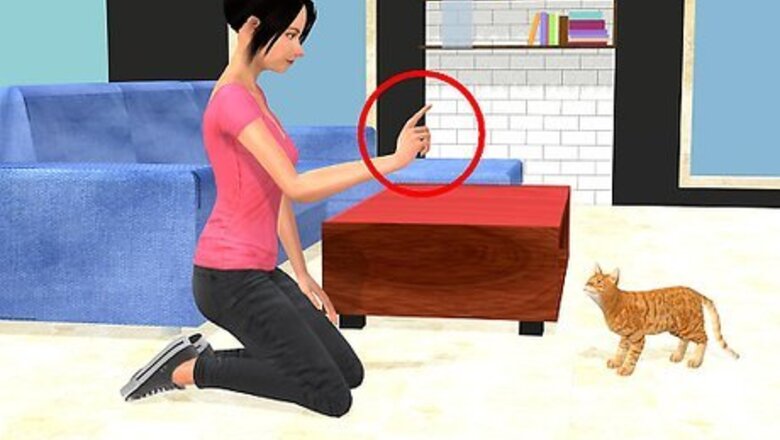
views
Responding immediately
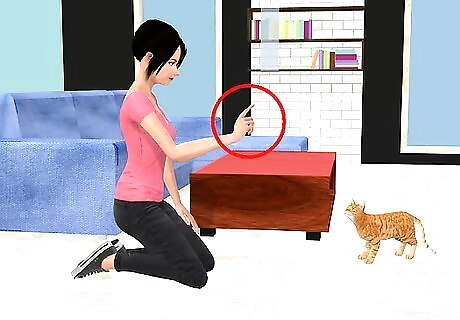
Try being firm with the cat first. Most cats respond to voice tone; if the tone is negative, deep and authoritative, the cat will know that you are displeased and be left in no doubt that you want the action to stop. Whenever the cat chews or scratches, say "no" in a firm, deep voice.
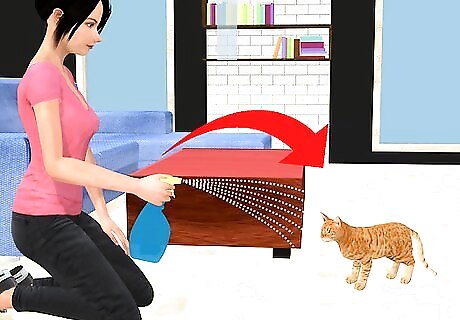
Follow up a strong "no" with a spray from a water bottle. This is probably best used if the cat is chewing furniture; for books, there is a risk of the pages getting wet.
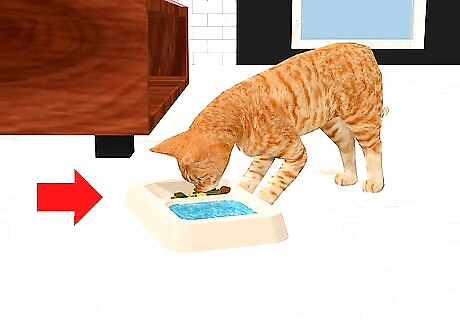
Feed your cat. Chewing can sometimes be a way of annoying you into feeding your cat, especially in the mornings before you've woken. The simple answer is to get up and feed your cat. This should alleviate the need to chew if your cat is doing it to get your attention.
Distracting the cat
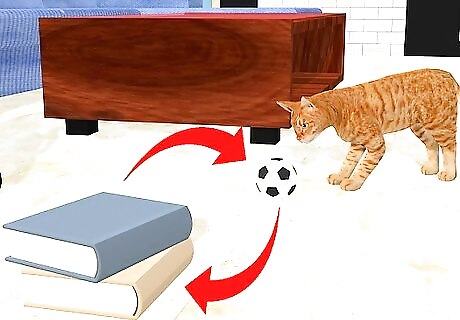
Distract the cat from chewing. Remove the book from the cat. Each time you catch your cat in the act of chewing, gently remove the book from the cat's mouth and replace with a favorite chew toy instead. Do this each time, and do it calmly but persistently. Pick the cat up and move it away from the piece of furniture he is chewing. Give the cat a favorite chew toy and keep an eye on the cat.
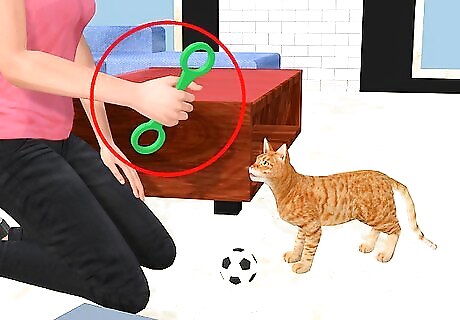
Play with the cat. A good way to distract your cat is to play a game, dangle something for the cat to attack or use a laser pointer for chasing.
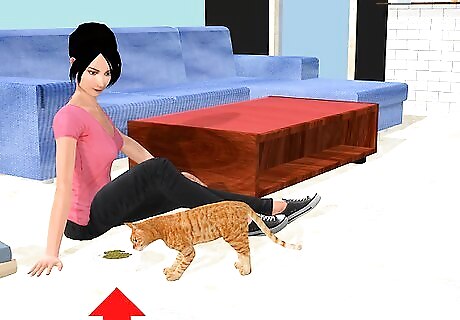
Keep snacks or treats near where you sit. If the cat chews the couch because it's where you're sitting, take note of when the cat looks like it wants to chew and quickly head it off with a treat. Do not give a treat if the cat has already chewed; that would seem like positive reinforcement. Instead, only use a treat as a form of distraction.
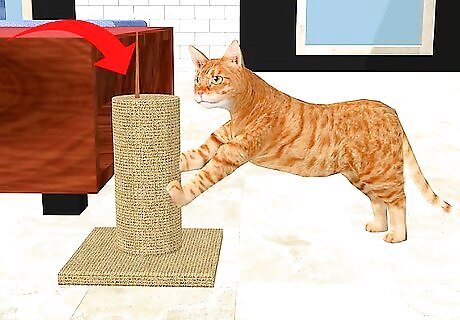
Bring a scratching post into the area where your cat likes to chew. This might encourage the cat to scratch the post instead of chew the books or furniture.
Creating barriers
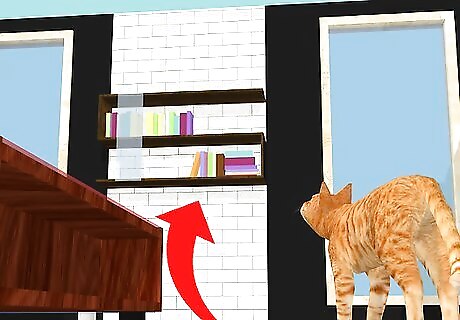
Put your books away in a way that makes them hard to get at. In the case of chewing books, once the cat has the habit, it will be very hard to break. In this case, dealing with your book collection is the best line of defense: Face all books spine outward in bookcases. Do not leave any sitting sideways with pages or edges showing, or the cat may be tempted to pull them out and chew (for most chewing cats, it is the paper that is most appealing, not the spine). Pick up books left on the floor. Don't leave books sticking up out of containers, etc. Anything sticking up provides temptation. Put a book you're reading out of reach or behind a barrier, such as a bedside table drawer or underneath a laptop, to prevent the cat from accessing it.
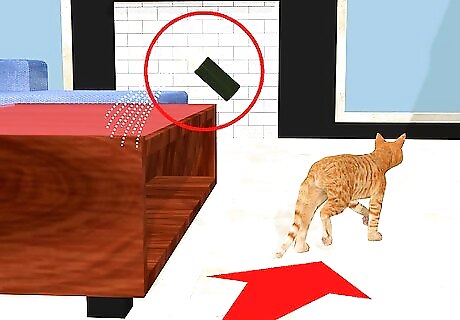
Use vinegar or bitter apple spray. Cats don't like the odor or taste of vinegar or bitter apple spray and it may help to keep the cat away. Spray vinegar or bitter apple spray on your couch or other furniture, focusing most on the chewing zones. Wipe vinegar on a chewed book. Or leave a bowl of vinegar near a pile or stack of books.
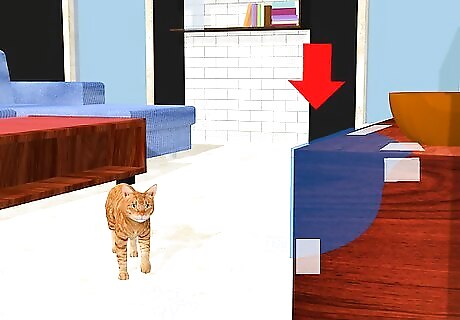
Cover chewed furniture. If you can cover favorite chewing spots with something that the cat isn't likely to chew on, this might save the furniture. For example, you could wrap very heavy fabric with a scratchy texture around a couch end, or cover an area with a tarpaulin.


















Comments
0 comment